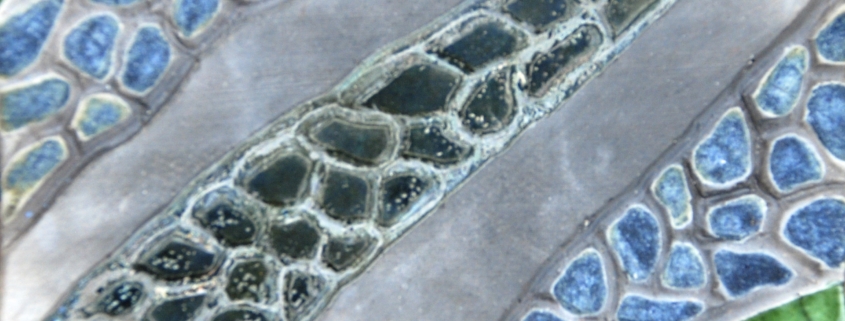Second Epiphany B-24
Immanuel Lutheran, Chicago
It’s called an escape room. You and your friends pay to get locked in a room. You have one hour to figure out how to get out –in other words– to escape. The clues are obscure and almost nonsensical. The kids and I picked a hard one. The brochure said we’d have only a 30% chance of success. After we were locked in, we had to figure out how to close 8 open water hatches to keep our submarine from sinking and save the crew. We closed all but two of them when time ran out. Man, were we bummed.
You might expect the same disappointment from many Christians today when they hear today’s gospel. Jesus invites the disciples to join him mission. This mission does not include an escape plan. Instead, it’s a transformation plan. We have our marching orders. Follow me, Jesus says. Put on the body of Christ to be transformed in heart and mind. We are part of a new human family called the beloved community.
Jesus found Philip. Philip found Nathanael. They joined Andrew, Simon Peter, and others in declaring eureka! “We have found the Messiah” (John 1:41). The English translation is dry by comparison. There is joy, amazement, and disbelief in their voice. Can anything good come out of stink-holes like Nazareth, Nathanael asked? They replied, ‘Come and see.’ Jesus said, ‘Follow me.’
Philip, Nathanael, Andrew, and Simon Peter didn’t know they were becoming Christians. They just knew they were thirsty and hungry for something better. They didn’t know they were disciples, or followers, until they saw Jesus. He said to them come and see. Follow me. Jesus was a walking epiphany, an awakening. The disciples were among the first in the human family to see something in Jesus that answered their own deepest longing and drew them to follow.
We encounter this call to mission in baptism. The American Catholic Monk, mystic, and writer Thomas Merton compared baptism to spiritual mountain climbing. The original, but censored, beginning of his famous autobiographical book about coming to faith and becoming a monk, The Seven Storey Mountain reads, “When a man [or woman] is conceived, when a human nature comes into being as an individual, concrete, subsisting thing, a life, a person, then God’s image is minted into the world. A free, vital, self-moving entity, a spirit informing flesh, a complex of energies ready to be set into fruitful motion begins to flame with love, without which no spirit can exist…” This is what the disciples had seen in Christ Jesus.
This what it means to say that we are Christians. Jesus is our epiphany. We have seen and heard in him who and what we are. In the life of Jesus, we have glimpsed the divine and have seen God’s eternal love for us and for all creation, therefore, we follow him in the way that he lived. Like a mountain beaconing on the distant horizon, Jesus makes visible a new way of living we have learned to call the way of the cross.
Like climbing a mountain, the way of the cross is the slow, painstaking process of faith becoming lived faith in us. There’s an old joke, “Jesus is coming. Look busy!” We can become busy, busy, busy with doing good things, but this is a kind of trap. Instead, be transformed by the renewing of your hearts and minds. The way of the cross is the life-long struggle to transform our lifestyle and habits with the help and guidance of the Holy Spirit in ways that reflect God’s love for us and for others. It is deeply personal and intimate for each of us, yet the way of the cross is not merely about our own self-improvement. It involves us with each other in re-ordering the family, neighborhood, and society. Following Jesus’ the way of the cross is learning to beat our swords into plowshares, and our spears into pruning hooks and fashioning communities of justice and peace, by embracing God’s steadfast and abiding love for you. We can only love others as well as we learn to love ourselves. Come and see, Jesus says. Follow me.
You may be wondering whether such wonderful things really include you, or for that matter, any of us? It feels as though we’re living in the days of Eli from our first reading. “The word of the Lord was rare in those days; visions were not widespread” (1 Samuel 3:1b). Eli was a priest down on his luck, feeling guilty because he couldn’t stand up to other priests, particularly his own sons, who habitually dishonored God through extortion, greed, and sexual assault. Eli no longer expected to see or hear anything from God because he didn’t have the courage and moral fortitude to do what God desired.
Fast forward about a thousand years to our Gospel reading. We read about Nathanael. Maybe you can relate to Nathanael. Upon receiving the good news of the Messiah from Philip his first reaction is skepticism. The disillusionment of Roman occupation and the corruption of religious leaders is not easy to dislodge. Our scripture mentions Nathanael was sitting under a fig tree. That is the same tree from which Adam and Even fashioned clothing to cover their nakedness and shame. Was he moping? Does he dare to dream about a better life? Nathanael dismisses Philip, “Can anything good come out of Nazareth?” (John 1:46).
The grace of God is revealed in the most unlikely of places. See it shining from the darkest depths of your own heart and soul. Jesus says, to us and to Nathanael, Follow me. Come and see. God has a dream for the world that includes and requires each one of us. “Who me?” we ask. “You mean right now?” We, too, are incredulous. We can relate to Eli and Nathanael.
As the Reverend Doctor, Martin Luther King, Jr., so memorably reminded us, to respond to God’s call is to fall in love with Love itself. Through encounter with Christ, we learn to be lovers of people, because as Christian people, we are called to invite others into the dream, to become members with us in the beloved community. Nathanael wasn’t changed so much as he was set into motion by Jesus’ call. That’s really all that is required to become a disciple. Follow me. Come and see.
It was almost 60 years ago. On January 26, 1966, just 11 days after his 37th birthday, Dr. King moved his family into a $90-a-month railroad apartment on Chicago’s West Side, 1550 South Hamlin Avenue, to protest living conditions and access to housing. In her memoir, “My Life with Martin Luther King, Jr.,” Coretta Scott King recalls the family’s moving day into the Chicago apartment they would call home. “Our apartment was on the third floor of a dingy building, which had no lights in the hall, only one dim bulb at the head of the stairs … As we walked in … the smell of urine was overpowering. We were told that this was because the door was always open, and the drunks came in off the streets to use the hallway as a toilet.”
Dr. King’s effort to promote economic justice in Chicago was opposed by angry mobs, violent resistance, and a wily self-serving mayor. By most accounts, his work here ended in failure. Yet, one significant outcome of the 1966 summer of rallies, protests, and marches in Chicago was the enactment of the Fair Housing Act of 1968. While King’s vision of equitable and fair housing remains unfulfilled, we find ourselves at an historic decision point in the primary election this March. With a vote for Bring Chicago Home, we can generate 100 million dollars annually for homelessness prevention and support services. We can do so, even while lowering the real estate title transfer tax for 96% of all of us, by raising it on the sale of properties valued over $1 million.
Jesus’ mission doesn’t include an escape plan. Instead, it’s a transformation plan. We will all find ourselves in the embrace of the eternal arms of God soon enough. But until that day, it’s a call to roll up our sleeves and make this life better for ourselves and for others—not by busying ourselves with good deeds, but by putting on the life of Christ. With the Christ-consciousness that comes from prayer, worship, and study, our life begins to take on a new shape. We begin to move in a new direction. We start to see ourselves and each other as bathed in a new light. We start to follow Jesus in the way of the cross. Come and see. Follow me.

